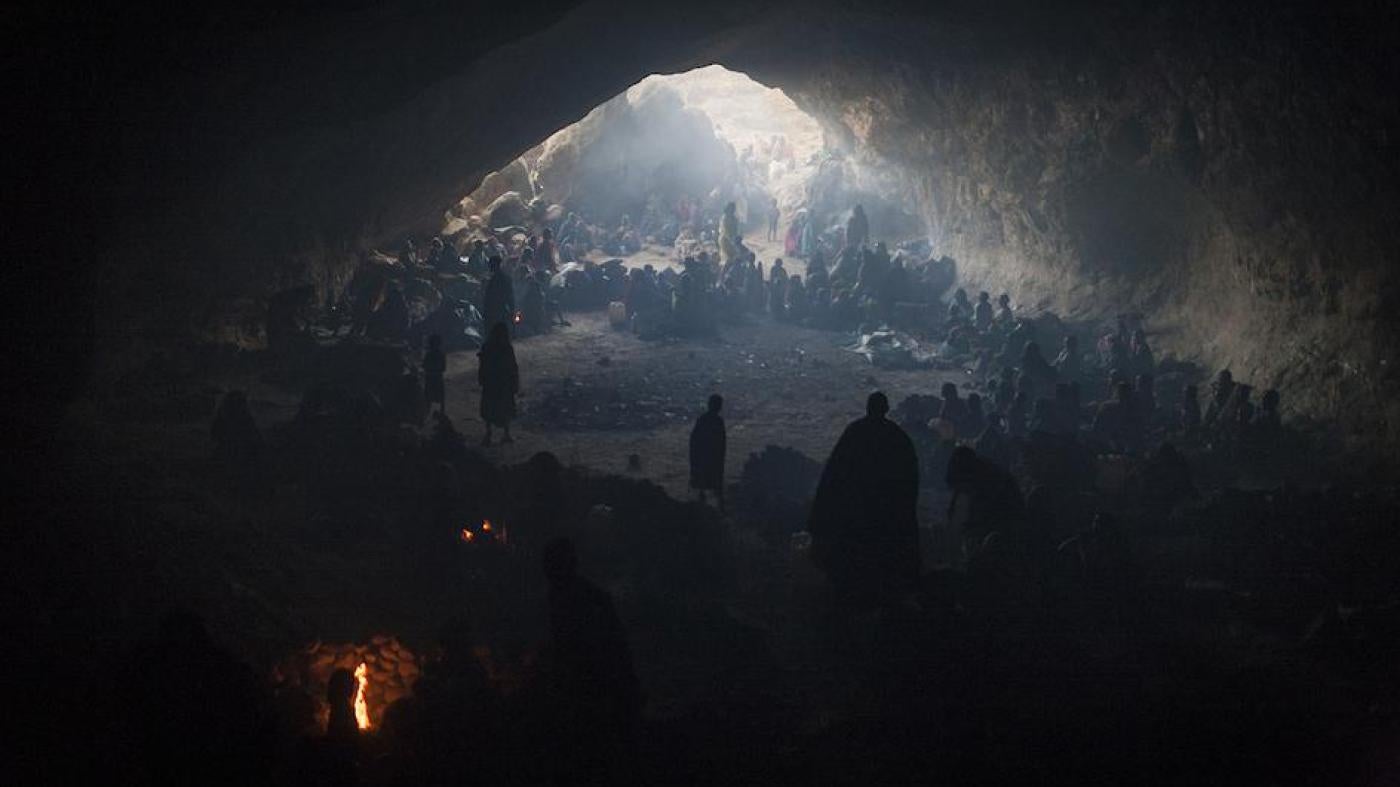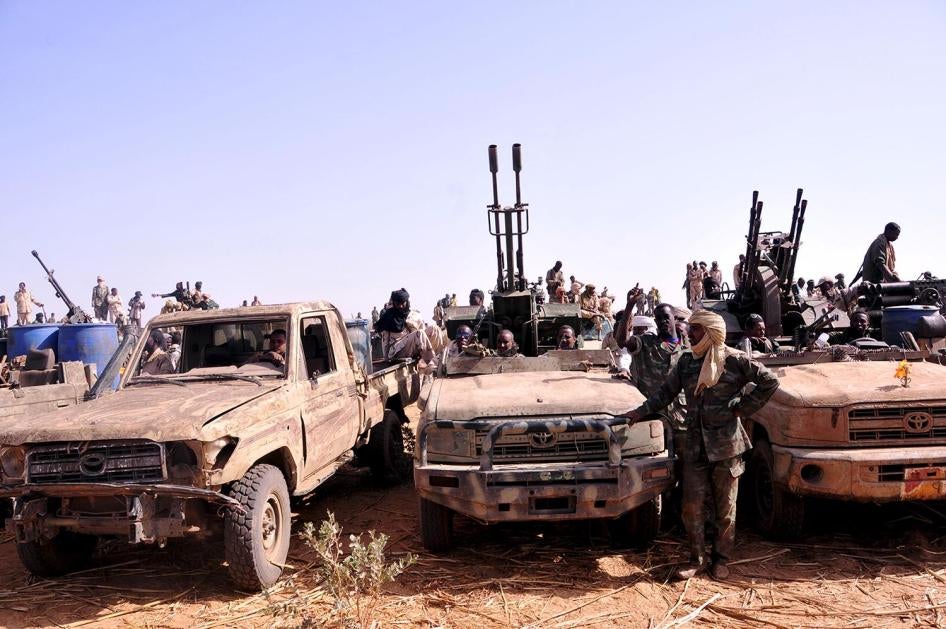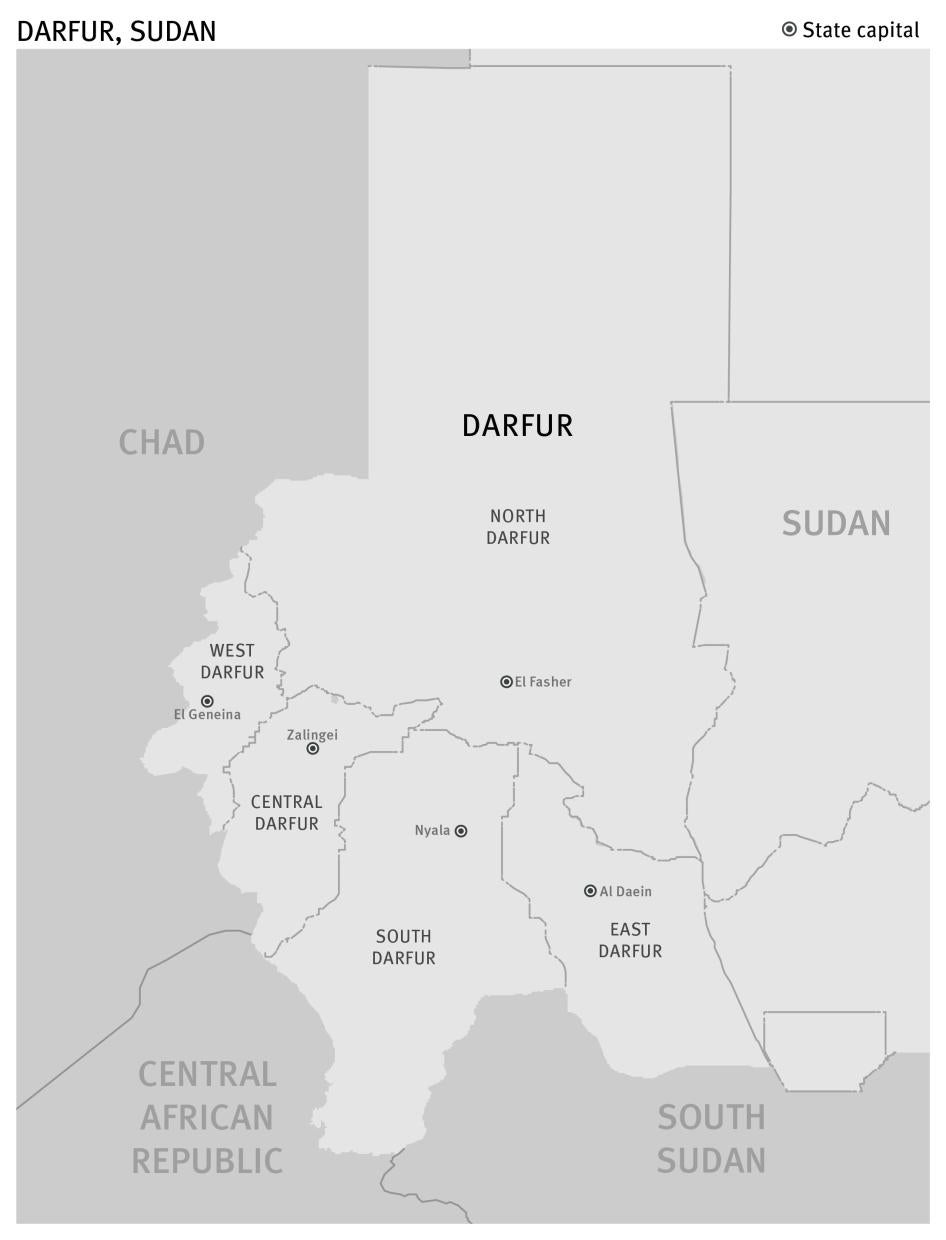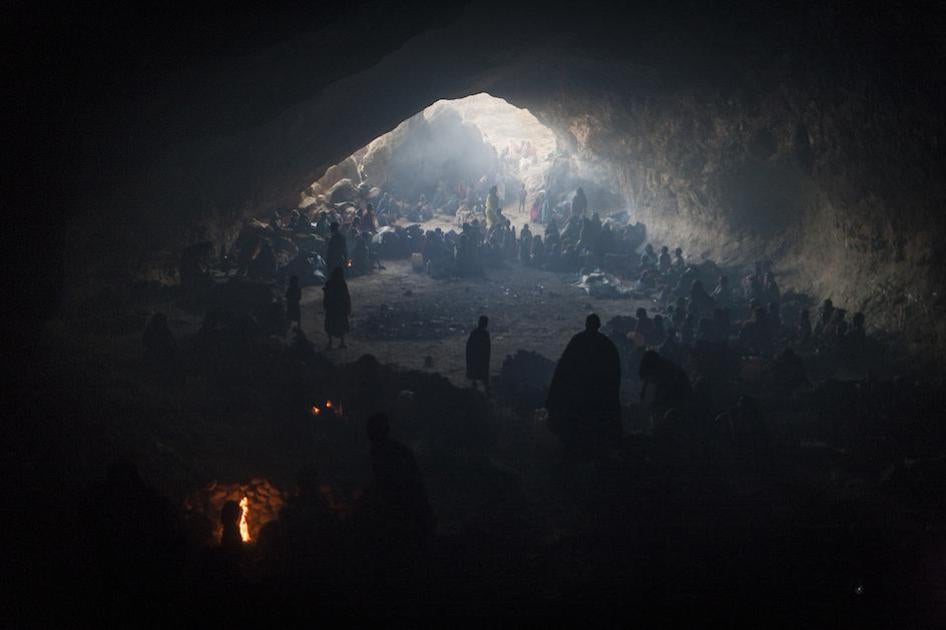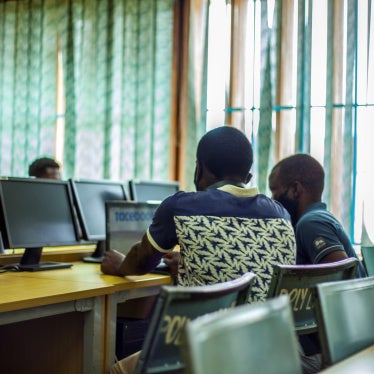A number of battle-ready pickup trucks, some outfitted with machine guns, roared into the village of Hijer Tunjo, in southeast Darfur, on February 28, 2014. Armed men, members of the Sudanese government’s Rapid Support Forces (RSF), jumped from the vehicles and began beating civilians, looting property, and burning homes.
Ibrahim (not his real name), one of the soldiers, had been recruited into the RSF right after high school, at the age of 17. A few months later he was fighting in Darfur.
Before the attack on Hijer Tunjo, senior commanders gave orders to Ibrahim’s unit that they should abuse the women in the village. “We were told to do whatever we wanted to these women,” Ibrahim told a Human Rights Watch researcher. “That the women belonged to us.”
“I saw other soldiers rape 11 women,” he said. “Personally I did attempt to rape one of the women and she hit me. And I lost my temper and I shot her.… She is dead.”
Asked if he’d like to say anything to the woman’s family, Ibrahim replied: “I am deeply sorry. But you must understand that this was not my endeavor, I was under the command of men with no mercy. I wish I could turn back the time.”
After the attack, Ibrahim was reassigned to work on logistics from the RSF base near Nyala, the capital of South Darfur. In February 2015 he defected, fleeing his unit, machinegun in hand, and joined up with a faction of the rebel Sudan Liberation Army.
While the Sudanese government has made it nearly impossible for journalists and rights activists to go to Darfur, Human Rights Watch interviewed nearly 200 victims and witnesses of the conflict, many of whom who had fled to Chad or South Sudan. Through these interviews and scores more done by phone for our report “Men With No Mercy,” a picture emerges of Sudanese soldiers – including child soldiers like Ibrahim – committing numerous war crimes. Because these abuses appear to be part of a widespread or systematic attack on a civilian population, they could amount to crimes against humanity.
Three other defectors from Sudanese government forces told Human Rights Watch that commanding officers ordered their units to carry out atrocities against civilians, including sexual violence.
While any defector’s account needs to be treated with caution, Human Rights Watch compared Ibrahim’s with those of civilians who survived the attack and found his story to be credible. Many of the survivors we interviewed recounted similar incidents of how people were killed when they resisted rape or tried to prevent their sisters, mothers, or daughters from being raped.
Ibrahim also corroborated the widespread pillaging and burning of homes that survivors recounted. Numerous victims from around Darfur said that RSF forces looted nearly all their possessions, including goats, chickens, cattle, and camels – a community’s collective wealth. The soldiers destroyed water points and wells, which are necessary to sustain life in a harsh desert. Food stores and farming tools were also destroyed. Entire villages were burned to the ground.
For more than 12 years, a devastating conflict between Sudan’s government and various rebel groups has raged in Darfur, marked by unlawful killings, sexual violence, looting, and forced displacement. In late 2013, the Sudanese government created the RSF, composed in part of former “Janjaweed” militias, that have been deployed in Darfur and Sudan’s other conflict zones. RSF attacks have forced at least tens of thousands of Darfuris to flee their homes. The RSF is notorious for raping and sexually assaulting women with impunity. There has yet to be any prosecutions of government soldiers for war crimes carried out by RSF soldiers.
Survivors need humanitarian assistance immediately. So far they have received little or no medical or psychosocial services, or other aid. The region where many of the attacks took place – Jebel Marra – has been off limits to aid agencies for years.
To end the impunity surrounding the crimes in Darfur, the authorities should investigate and appropriately prosecute those commanders giving the orders to rape and murder, but also those who knew or should have known of the abuses and did nothing to stop or punish them. They also should be prosecuted for recruiting children like Ibrahim to be soldiers.
Ibrahim is both a perpetrator and a victim. He should face criminal charges, but with all the protections provided to children implicated in crimes who have suffered the trauma and indoctrination of being a child soldier. That includes being offered the possibility of rehabilitation and reintegration into society.
